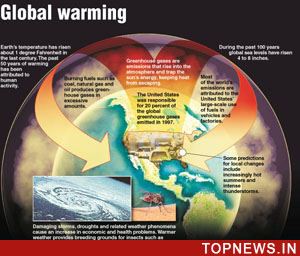Climate scientists overwhelmingly say that we will face unprecedented warming in the coming decades. Those same scientists, just like you or I, struggle with the emotions that are evoked by these facts and dire projections. My children—who are now 12 and 16—may live in a world warmer than at any time in the previous 3 million years, and may face challenges that we are only just beginning to contemplate, and in many ways may be deprived of the rich, diverse world we grew up in. How do we relate to – and live – with this sad knowledge?
Across different populations, psychological researchers have documented a long list of mental health consequences of climate change: trauma, shock, stress, anxiety, depression, complicated grief, strains on social relationships, substance abuse, sense of hopelessness, fatalism, resignation, loss of autonomy and sense of control, as well as a loss of personal and occupational identity.
This more-than-personal sadness is what I call the “Great Grief”—a feeling that rises in us as if from the Earth itself. Perhaps bears and dolphins, clear-cut forests, fouled rivers, and the acidifying, plastic-laden oceans bear grief inside them, too, just as we do. Every piece of climate news increasingly comes with a sense of dread: is it too late to turn around? The notion that our individual grief and emotional loss can actually be a reaction to the decline of our air, water, and ecology rarely appears in conversation or the media. It may crop up as fears about what kind of world our sons or daughters will face. But where do we bring it? Some bring it privately to a therapist. It is as if this topic is not supposed to be publicly discussed.
This Great Grief recently re-surfaced for me upon reading news about the corals on the brink of death due to warming oceans as well as overfishing of Patagonian toothfish in plastic laden oceans. Is this a surging wave of grief arriving from the deep seas, from the ruthlessness and sadness of the ongoing destruction? Or is it just a personal whim? As a psychologist I’ve learned not to scoff at such reactions, or movements in the soul, but to honor them.

